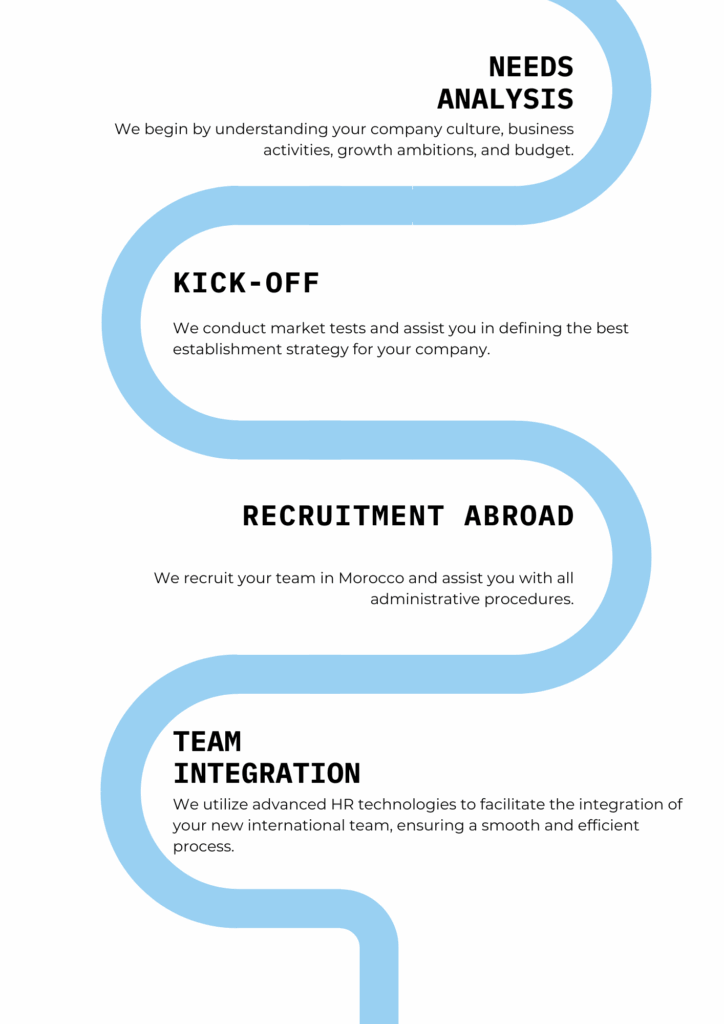
HOW WE RECRUIT IN SOUTH AFRICA

RECRUITMENT IN SOUTH AFRICA
Why Expand to South Africa ?
South Africa serves as a strategic gateway for companies looking to establish a presence in Southern Africa. The country boasts a diversified economy, strong financial services, well-developed infrastructure, and a relatively stable legal system. Johannesburg, Cape Town, and Durban are major economic hubs, with excellent air, road, and maritime transport networks.
The workforce is predominantly English-speaking, skilled, and well-educated, supported by a network of reputable universities and technical institutes. South Africa also has a young population, tech-savvy and equipped with expertise in strategic sectors such as digital technologies, engineering, renewable energy, and finance.
The South African government has pursued investor-friendly policies in recent years, especially in green energy, infrastructure, and digital transformation. Incentive programs also exist to support local employment and facilitate the setup of high-value-added business operations.
Key Information About Employment in South Africa
Minimum Wage (SMIG)
Legal Working Hours
Types of Employment Contracts
Paid Leave
As of March 1, 2025, the minimum wage is set at ZAR 28.79 per hour, or approximately ZAR 1,840 per month for a standard 40-hour work week—equivalent to around €114. This rate varies by sector, with specific conditions for agricultural and domestic workers.
Standard working hours are 45 hours per week, spread over five working days, with a maximum of 9 hours per day. Overtime must be paid at an increased rate.
Recognized contract types include permanent (indefinite), fixed-term, part-time, temporary (via staffing agencies), and casual work. All employment contracts must be in writing and comply with South African labor laws.
Employees are entitled to a minimum of 21 working days of paid leave per year after 12 months of continuous service. Additional leave is provided for illness, maternity, and family responsibilities, as governed by national labor regulations.
FAQs
Hiring requires a written contract outlining the role, salary, duration, and working conditions. Employers must comply with employment laws covering working hours, leave, pay equity, and non-discrimination. For foreign employees, a valid work permit must be secured before employment begins
- Information Technology (IT), cybersecurity, cloud, and data
- Renewable energy: solar, wind, storage
- Finance and fintech
- Business Process Outsourcing (BPO)
- Mining and extractive industries: gold, platinum, lithium
- Agribusiness and agritech
- Logistics, transport, and supply chain
- Tourism and hospitality
The probation period typically lasts up to three months. It allows the employer to assess the employee’s performance and provides time for the employee to adjust to the work environment. This duration must be specified in the employment contract and comply with labor law provisions.
